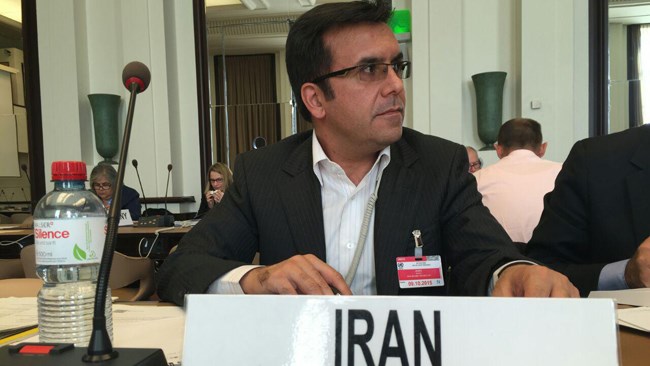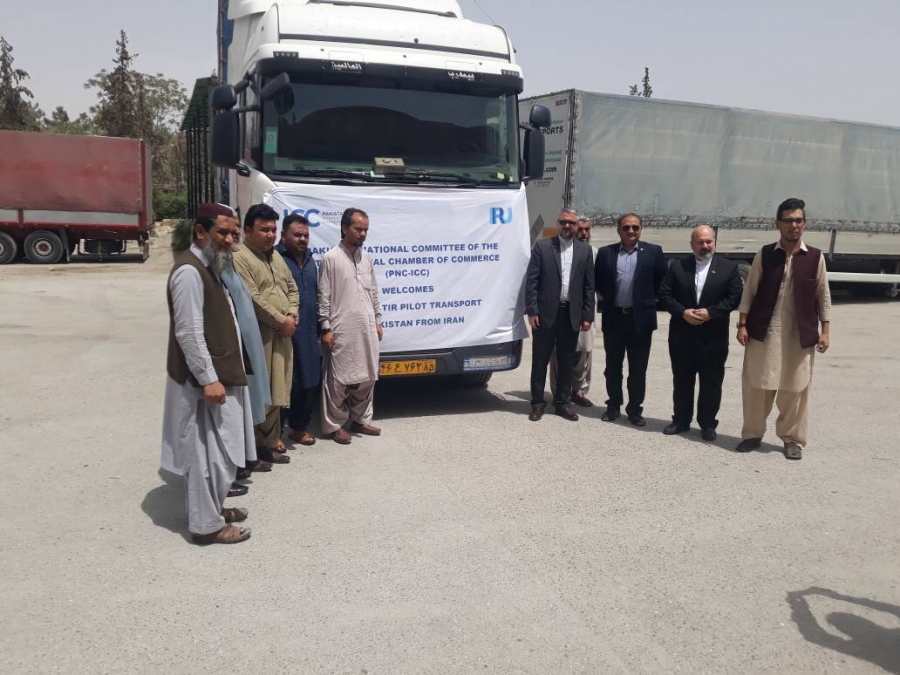A representative from Iran has been chosen for the second time as a member of the TIR Executive Board (TIRExB).
Mostafa Ayati, Deputy Director of Transit Bureau of Islamic Republic of Iran Customs Administration (IRICA) was elected for the second time during the 69th session of the TIR Administrative Committee that took place on 7 February in Geneva.
Ayati’s election for the second time came thanks to cooperation between Iran Chamber of Commerce, Industries, Mines and Agriculture (ICCIMA) and the IRICA, the TIR Carnet section of the ICCIMA announced on Tuesday.

Mostafa Ayati, Deputy Director of Transit Bureau of Islamic Republic of Iran Customs Administration (IRICA), represents Iran at TIRExB
The nine members of the board are elected for a period of two years. Ayati also represented Iran from 2017 to 2019 at the TIRExB which is a subsidiary body of the TIR Administrative Committee that works under the United Nations Economic Commission for Europe (UNECE).
The European Commission (EC), Austria, Russia, France, Turkey, Poland, Ukraine, Bulgaria and Azerbaijan are also represented at the TIRExB that supervises and provides support in the application of the TIR procedure at the national and international levels.
The Customs Convention on the International Transport of Goods under Cover of TIR Carnets (TIR Convention, 1975) is so far the only universal Customs transit system in existence, according to the UNECE.
To date, it has 76 Contracting Parties, including the European Union. It covers the whole of Europe and reaches out to North Africa and the Near and Middle East. More than 33,000 operators are authorized to use the TIR system and around 1.5 million TIR transports are carried out per year.
The United Nations Economic Commission for Europe believes this global customs transit system reduces cross-border transport time by up to 80%, and cuts down costs by up to 38%.
To cover the customs duties and taxes at risk throughout the journey, the Convention has established an international guaranteeing chain which is managed by the International Road Transport Union (IRU).
IRU is also responsible for the printing and distribution of the so-called TIR Carnet, which serves both as international Customs document and proof of guarantee.
Late last July, first Iranian lorries entered Pakistan under the TIR Convention after Islamabad joined it. The cargo was dispatched from Zahedan, the provincial capital of Iran’s Sistan and Baluchistan to Quetta, the provincial capital of Pakistán’s Balochistan.

First Iranian cargo lorries ready to transit goods to Pakistan in July 2018 (Photo: http://tir.iccima.ir/)